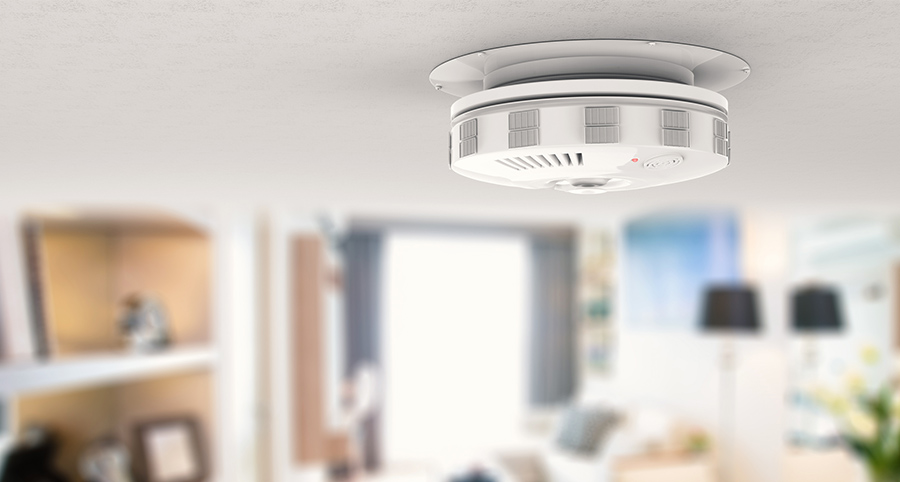Is there a difference between traditional smoke detectors vs. monitored fire alarms in Springfield?

In the Springfield smoke detector vs. monitored fire alarm debate, one alarm rises over the rest. Smoke detectors are a vital first step in shielding your residence from fire, but they have some notable limitations. Alternatively, monitored fire alarms offer more means to discover a potentially dangerous situation and can notify help when disaster strikes. Linking your fire alarms to a comprehensive smart home also delivers various additional benefits that your common smoke detectors would only hope for.
The drawbacks of standard smoke alarms in [[targetlocaion]]
Protecting your home from fire is a chief concern for homeowners, and smoke detectors take on a critical part in keeping your family safe. Despite that fact, smoke detectors have various drawbacks. For example, they are only able to detect smoke, not extreme temperatures. In the event there is an emergency in your residence, you might not be warned until the smoke rises to the smoke detector. While there are some other unmistakable signs of fire -- such as a marked rise in heat -- if you don’t have smoke, you won’t have a triggered smoke detector.
What’s more, smoke detectors only sound the alarm when they encounter an adequate amount of smoke. In the event a fire creeps along slowly at first, you may not be cautioned until the situation is out of hand. Various smoke detectors use dual-sensor technology, meaning they will be able to perceive smoke from both a raging fire and something less intense. Then when they sound their alarm, it falls to the resident to contact emergency services after exiting the residence.
Monitored fire alarms do much more than ordinary smoke detectors
While they look about the same as regular smoke detectors, monitored fire alarms offer more benefits. If integrated to a total home security package, they will:
- Detect fire with dual-sensor smoke detection: Similar to a traditional smoke detector, the monitored device will activate from an active or passive fire. It will resonate a high-volume beeping if it senses danger.
- Identify fire with a sudden temperature increase: A monitored fire alarm can even activate if it notices an unusual increase in heat. Frequently, heat comes before smoke. Having additional ways to uncover a fire equates to additional means to protect your loved ones.
- Notifies professional monitoring agents: Fires will happen when you are on site or somewhere else. No matter of the situation, your fire alarms will notify your monitoring team, who can swiftly call first responders. When every tick of the clock is critical, it's nice to realize that someone is consistently keeping a watch of your home.
- Pairs with home automation: While the main purpose of a fire alarm is to detect fire and request monitoring agents, it will also join forces with other automated components. For instance, a triggered alarm might prompt your system to start the exhaust fan to hinder the spread of fire or trigger smart light bulbs so you can find the safest exit out of your home.
Your monitored fire alarms are an important aspect of a comprehensive smart home
The best way to optimize your fire alarms is to integrate them with a Vivint home security system. Consult with a Vivint expert today and customize the perfect smart home for your family. Diall (417) 428-8884 or submit the following form to get started.